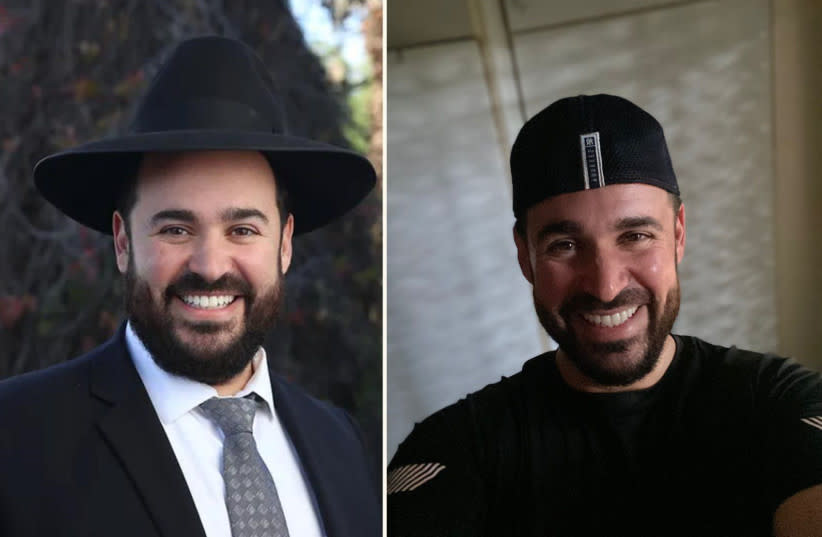Earlier this month, several women came forward to share their experiences with a man they met via online dating applications, presenting himself as “Jake Segal,” who appeared like any other guy they’d cross paths with on a platform to introduce people across a wide variety of dating preferences.
Following the arrest of Rabbi Yosef Paryzer, who posed on dating apps under the alter ego “Jake Segal” and used this false identity and fraudulent pretexts to date and sleep with women, many women across Israel have expressed reluctance to use such apps moving forward.
However, just as many expressed that when it came to dating apps – which include Tinder, JSwipe, and Bumble – this was merely an expectation they had of the people presenting a version of themselves they wanted to use for their romantic gain.
Staying safe on dating apps
Still, neither women nor men have developed a new sense of distrust in the safety and future of online dating. The Magazine spoke with several women about the future of these applications and the likelihood of coming across possible partners who pose as someone other than their real selves to gain access to dates. The responses of these women provide a closer look at how we are able to gauge the future of the virtual dating world.
'S,' 34, was one of the women who interacted with “Jake Segal,” and spoke about her process of sifting through dating profiles to determine which profiles seemed shadier than others.

“There have been a few times that I was looking for more of a relationship, and other times I was looking just to hang with someone – but these rules remain the same no matter what,” she said.
“I’ll automatically swipe left [for not interested] on profiles with these, which raise red flags for me: Men with pictures without shirts on, or men who don’t have any kind of description written about them.”
“Plus, if they don’t have a photo of their face, if it looks staged, or if it’s many of the same photo from different angles, I pass. It’s just about the vibe I get from them in general,” she added.
'S' divulged that this process typically works for her and that her mind was blown after learning that “Segal” was a “catfish” – someone who sets up a fake online profile to trick people.
“I have sifted through many guys and been able to pick up which ones are the fake ones. It really still blows my mind that Jake was not real and that I fell for it,” she said. “But also, it never went more than one night, as something was off and I always felt it. I thought it was just a case of ‘he isn’t for me’ instead of assuming the profile is fake.”
'S' was one of many women who said she would still continue to use the apps because it is a great way to meet people she would not have otherwise met. She did note that moving forward, she will be more cautious of those she interacts with. She shared some of the steps she plans to take in the future to ensure as safe an experience as possible.
Some of these criteria include – but are not limited to – taking more time to talk before exchanging phone numbers; being more on the lookout for red flags like not meeting at the other party’s home, rather than just her own; not settling for a response of “I don’t really do social media”; and trying to find additional mutual connections.
Miriam Klein, 29, lives in Israel's center. She told the Magazine that she feels options are limited if one doesn’t use a dating app, but that stories like this have made her put her guard up even more.
“Now I make sure to let people know where I’m going and let them know that if I don’t check in by a certain time, then something is wrong. I have to take extra precautions,” she said.
Klein expressed a very similar concern as 'S' and the many other women surveyed: If someone is lacking social media profiles in 2023, that’s an immediate red flag. Social media in the modern age is a tool to show different parts of your life – personal, professional, and so on.
“It’s really shady if someone doesn’t have social media,” Klein stressed.
One method that has proven to be effective for Klein is performing a reverse image search when she feels it is necessary.
“It’s saved me a couple of times – going online and performing this search has shown me a couple of times that a profile was fake because that person just found photos of an influencer from another country and used that on their profile.”
Klein emphasized that you can never really be too safe when it comes to protecting yourself. Confronting these catfish before ever meeting up often resulted in matches disappearing before they can be reported, but making sure they know that their act has been compromised could influence how these people act from then on.
In the end, dating is a gamble, but choosing to roll the dice does not mean anyone should feel their safety is compromised by putting themselves in the game.
